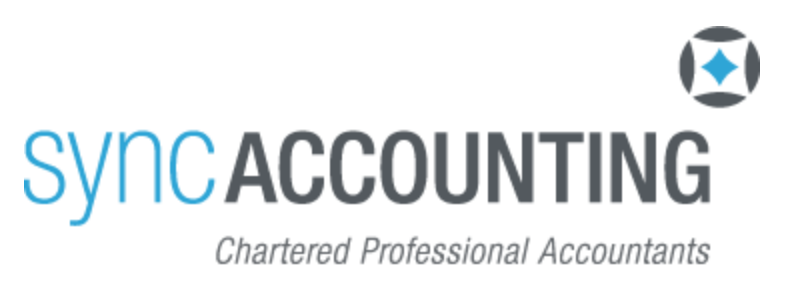So, what is the Underused Housing Tax?
Last year, on June 22, 2022, the CRA enacted the Underused Housing Tax (UHT). Their aim is to tax residential real estate owned by non-residents of Canada that is considered vacant or underused. Although we have worked hard to compile valuable and timely guidance for you, the CRA hasn’t given us much warning. They released the return on January 31, 2023, and their additional guidance in February 2023.
It’s important to note that although this new tax highlights non-residents of Canada, others may be at risk. Therefore, if you own or are on title for real estate, we suggest reading through the whole article!
Who does the Underused Housing Tax affect?
The UHT’s two components include filing and tax payment. The tax amount is set at 1% of the fair market value of properties owned on December 31. The second component, payment and filing, are due on April 30 of the following year.
The UHT rules include 3 categories of owners :
- Owners with no UHT reporting or tax obligation, known as “excluded owners”
- Owners required to file the UHT return and pay the tax, known as “affected owners”
- Owners required to file the UHT return, but don’t have a tax balance payable, also known as “affected owners”
Common Filing Scenarios for the Underused Housing Tax
Private corporations owning residential property
Private corporations, including Canadian Controlled Private Corporations (CCPC’s) are considered affected owners. This means that they are required to file an annual UHT return. Some corporations are exempt from paying the tax, however, that is dependent on the percentage of foreign ownership in the corporation.
Bottom line: You must file the UHT return but are exempt from paying the UHT tax if your corporation owns residential property and your shareholders are only made up of Canadian tax residents.
Partnership vs. co-ownership considerations
The distinction between a partnership and co-owners is a tricky one and can be an area where couples may get caught. In this case, we’ll refer to your rental or self-employment schedules on your personal tax return. This shows us how your income was previously recorded.
Bottom line: An assessment is made of the nature of the ownership of the property. We’ll also determine whether or not the income is truly reflective of co-ownership or partnership income.
Non-resident owners who own Canadian residential property
Non-resident owners who receive rental income from their residential property in Canada are affected owners. They will have to file the UHT return and may have to pay the UHT tax.
The CRA has also indicated that they may withhold the additional taxes paid at the time of sale (Section 116 clearance certificates) if filings have not been received in respect of your property.
Bottom line: You’ll have to file the UHT return and payment of the UHT tax depending on whether you qualify for any exemptions.
Trusts holding residential property
Here, the trustee is typically the affected owner and the individual who is required to file the UHT return (rather than the trust itself).
If you’re a trustee of an estate, use caution! While the deceased are exempt, as a trustee (executor or executrix), you may want to consider filing the return to be on the safe side.
It is also currently unclear whether or not an executor/executrix will require a clearance certificate with regard to the UHT.
Bottom line: The CRA has been unclear with whom is actually required to file the return. To cover your bases, we suggest filing the return and assuming that all the beneficiaries are Canadian tax residents.
Exemptions to the Underused Housing Tax
The Underused Housing Act actually has a lot of exemptions. – let’s hope one applies to you!
Exemption based on qualifying occupancy
The owner of a residential property may be exempt for the calendar year if:
- The residence is their primary place of residence (occupied by the owner, their spouse, or a child of the owner or spouse authorized to study at a designated learning institution)
- The residential property is occupied by one or more qualifying occupants for at least 180 days of the year
A qualifying occupant is:
- An arm’s length (not-related) tenant under a written agreement
- A non-arm’s length tenant (related) who pays a fair amount of rent (CRA says that ‘fair’ is 5% of the property’s taxable value)
- An individual owner or their spouse who is in Canada to pursue authorized work under a Canadian work permit and who occupies the dwelling for that purpose
- A spouse, parent or child of the owner who is a citizen or permanent resident
Exemption based on prescribed area and condition or person
Recreational and other properties in less densely populated areas, such as Revelstoke, may be exempt from the UHT if the property is:
- Located in a prescribed area of Canada, and
- Used personally by the owner, the owner’s spouse or both for at least 28 days during the calendar year.
To verify whether or not a region is exempt, please use this link.
Exemptions based on a property’s limited availability
- Limited seasonal access
- Disaster or hazardous conditions
- Renovation – Property is uninhabitable for at least 120 consecutive days during the calendar year due to a renovation done without unreasonable delay, and the property was not exempt in a previous year for the same reason
- Under construction – The property was not substantially completed (generally 90% or more) before April of the calendar year, or it was substantially completed in January, February, or March and offered for sale to the public during the year but never occupied by an individual
- Year of acquisition – The owner first acquired the residential property during the year and did not own the same property during any of the 9 preceding years
Exemption based on the type of owner
- Deceased owners and their personal representatives are exempt in the year of the owner’s death and the following year.
- Surviving joint owners with at least 25% interest in the property are exempt in the year of the deceased owner’s death
- Specified Canadian Corporations – Canadian corporations having less than 10% foreign ownership
- Persons who own the property solely in their capacity as a partner of a specified Canadian partnership where only excluded owners or specified Canadian corporations are partners at December 31
- A person who owns residential property solely in their capacity as a trustee of a specified Canadian trust, where each beneficiary is an excluded owner or specified Canadian corporation at December 31
Filing
Affected owners are required to file on a per-property basis. Affected owners who own two or more (multiple) residential properties in Canada on December 31 must file at least 2 separate UHT returns. If the ownership of a property is shared, each affected owner will file their own UHT return. Any related taxes to be paid are based on their specific ownership percentage.
How is UHT calculated?
UHT is calculated based on the greater of the taxable value:
- The assessed tax value for the year (property tax assessment), or
- The most recent sales price on, or before, December 31 of that calendar year
You also have the option to file an election to use the fair market value of the property. You must have a written appraisal report for the property from an accredited member of the Appraisal Institute of Canada (or equivalent) to use this. They also have to be arm’s length from the owner.
Late filing penalties
There are penalties if you have a UHT filing requirement and don’t file your return on time:
a) $5,000 for individuals or $10,000 for non-individuals (corporations, trusts etc), and
b) 3% of the tax payable times the number of complete months after the due date that the balance is unpaid.
Penalties are based on a per-return basis. Therefore, if you own multiple properties, you must file for each property. If you miss the deadline you’ll be met with steep penalties.
This tax is new for calendar 2022 and there are definitely some kinks that the CRA has to work out. Contact us if we haven’t been in touch already and you think these filings may apply to you. There is a balance of risk and reward here and given the amount of the late filing penalties, it might be safer to err on the side of caution. It’s best to file a return if there is the slightest possibility of you being an affected owner.
*We referenced CPA Canada’s article: “Underused housing tax – requirements and exemptions” By Bruce Ball last updated February 9, 2023.




